|
A few years ago, my husband and I attended an anniversary screening of Fast Times at Ridgemont High. Afterward, I posted on Facebook: Fast Times at Ridgemont High marked the true beginning of the 1980s. I should have added this: And then it handed the baton to The Breakfast Club and St. Elmo’s Fire. On June 10, 1985, David Blum’s article in New York Magazine, “Hollywood’s Brat Pack,” changed the lives of a group of young actors yet gave their fans a pop culture touchstone and a whole identity far greater than the sum of its parts. Andrew McCarthy, one of the Brat Pack’s resistant members, expressed it even better: If you were coming of age in the 1980s, the Brat Pack was at or near the center of your cultural awareness.  I wouldn’t read Blum’s article until my teens were well in the rearview mirror. And yet, it wasn’t until I read McCarthy’s memoir Brat—and, this past weekend, watched his follow-up documentary, Brats—that I would understand how vastly different the Brat Pack phenomenon’s effect was on me (a fan) from them (the branded actors). If there’s anything we Gen-Xers have in common with the Brat Packers, it’s that we’ve all grown up. We are gray and wrinkled. We have reinvented ourselves several times over—if not by circumstance, then by choice—and we’re confronting the quintessential midlife questions: What did it mean then? What does it mean now? What do I want it to mean in the time I have left? What do I want to mean? I don’t remember how or when the term “Brat Pack” came into my consciousness, but I loved it. Fifteen-year-old me connoted the moniker not as spoiled brats or arrogant actors, but as a representation or extension of what Duran Duran’s Rio video encapsulated: color, glamor, and excess—not of booze or drugs or sex (I was a naïve fifteen-year-old), but of freedom, wealth, fashion, and fun. I imagined the Brat Pack to be a group of successful, tight-knit friends who worked and played together, loved their lives, and would let you hang out with them if you asked. And I think that’s what we adolescents wanted. We wanted in on their world—at least, the world we perceived them to be living in. McCarthy said, “We filled a niche that needed to be filled in pop culture at that moment.” Our parents had the Rat Pack. Gen-X needed one of our own. And we got it. Like Rio, the Brat Pack and their films represented a kind of escapism. I never wrote fan fiction about the Brat Pack, but I could have. I would have initiated myself as one of them. I would have been dating any of the guys—Rob, Emilio, Andrew—and been best friends with the women—Demi, Ally, Molly. Others might have drifted in and out—Jon Cryer, Eric Stolz, Robert Downey Jr., Leah Thompson—but for me, the aforementioned six formed the core pack. They’ve since all wended their way into my novels in one form or another. McCarthy made the documentary because he realized he’d never talked about the experience with his fellow Brat Packers—they’d all been inextricably linked; yet for the last thirty years, they had avoided discussing it. And, as I know firsthand, writing a memoir brings such things to the surface and you find yourself needing to dig deeper. Because the narrative is never about what you think it’s about. Which was a running theme in Brats. Because I’d never read the article until some twenty-plus years later, I had no idea how scathing it had been, and how negatively it had affected those who’d been branded. I had no idea that these actors not only weren’t best friends, but also had gone out of their way not to work together following the article’s release. I had no idea that the term Brat Pack was far from a badge of honor. Rather, it was more of a scarlet letter. Looking back, I had subconsciously wondered why they never worked together again. Missed seeing them on the screen. What we lacked in additional content, we made up for by repeatedly re-watching those films. We owned them, and not just in the literal sense. Duran Duran outgrew the label “New Romantics” after only one album. The Brat Pack never shook their label. The business never let them forget it. The fans didn’t see a reason to forget it. There couldn’t have been a bigger schism between how the movie and media industries ridiculed them and how their fans revered them. “It wasn’t taken as a compliment by the industry,” said McCarthy. “We were members of a club we never asked to join.” As McCarthy reunited and reflected with his former co-stars/club inductees, one of their shared experiences of “collateral damage” (to use David Blum’s assessment) was that they were no longer perceived by the industry as professional actors who took their craft seriously. Again, I draw a parallel to Duran Duran, who faced similar criticism from those who labeled them “a teeny bop video band.” No one in the music industry cared that they wrote and recorded their own music and played their own instruments with precision night after night (at the same age as the Beatles, and… well, the Brat Pack). But here’s the thing: We knew. We cared. We took them seriously. We knew every member of the Brat Pack was a talented actor. McCarthy lamented “All you want is to be seen.” We saw them. But, in our teenage shortsightedness, what was even more important to us at the time was that we felt seen. In a high school library on a Saturday. In a jeep following college graduation. At a prom. On a day off. In response to Blum’s article and the Brat Pack brand, McCarthy said, “This isn’t the right perception of who we are. This isn’t the reality of our experience.” Likewise, Ally Sheedy said, “The Brat Pack is an image someone thought up, and by someone who doesn’t know anything about us.” But Gen-X’s perception, even if fantasy, helped us craft and shape a narrative about ourselves and who we wanted to be. Jon Cryer said, “ ‘Brat Pack’ allowed a new narrative to take place.” Yet, unfortunately, for the Brat Pack themselves, to paraphrase McCarthy, they lost the narrative of their careers. And perhaps even their lives. Years later, McCarthy reflected on what the article perhaps really triggered in each of them at the time: That article tapped into doubts and fears we may have had about ourselves. Was it touching truth? It was touching fear, and fear is a powerful thing. And yet, it made us feel more brave, more confident, more certain. Which is what McCarthy has reconciled and made peace with, I think. When fans talk to him about the Brat Pack films, “they’re talking about themselves and their own youth, and we are avatars of that moment.” Demi Moore seems to have reconciled with it in a way that most resonates with me: The event is the event. What we make it mean is the value that it has in our lives. Which, perhaps, brings me full circle to the power of narrative, and the claim made by the late Donald Murray: All writing is autobiographical. When we watch a movie, read a book, and/or listen to music, we are ultimately immersed in our own story. Watching Brats made me write this blog post and recall: The first time I saw The Breakfast Club, or watched the Rio video, or laughed with my friends as we cast Twilight with Brat Packers. The first time I felt seen. Felt heard. Felt understood. Felt powerful. Felt like I mattered. The first time I wrote a story and imagined myself with John Taylor as the love interest. And later, in a novel, with Andrew McCarthy. Or Rob Lowe. Or Emilio Estevez. My novels were movies, and they were cast as the characters. My teenage years were full of pain. Yet at age 54, the stories I tell regarding the 80s and my adolescence are about the music and the movies and the clothes and the colors. I write about all the things I escaped to rather than the things I escaped from. It happened for us, not to us. We all made it mean something. And when others read my stories, they read—and write—their own. That’s a pretty good club to be in.
0 Comments
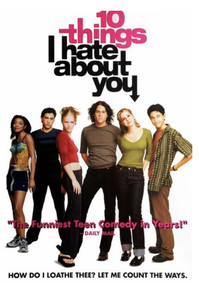 Yesterday was Craig’s birthday, and our independent movie theater was showing the 1999 film 10 Things I Hate About You. Despite being a GenXer like me, Craig has a penchant for 90s pop culture. Thus, it made for a good birthday date. Craig describes 10 Things as “one of the better films of its ilk.” I had never seen it** other than a scene I happened to walk in on while Craig was watching the film on TV a couple of years ago. I couldn’t tell you which scene it was, but I was unimpressed enough that I returned to whatever I had been doing. Hence last night, when the credits rolled and the audience broke into applause,*** Craig leaned over and said, “Thanks for sitting through that with me.” “It wasn’t bad,” I replied as we gathered our things. I could easily see its appeal. It’s Gen Y’s The Breakfast Club, capturing a time and place through music and fashion and the classic tropes of adolescent love and angst and belonging with comedy. It made the case that Shakespeare isn’t dead. Yet overall, I still wasn’t impressed. I aired my grievances as we walked downtown to the car. Aside from jokes that landed poorly with me (namely, “Kat didn’t take her Midol this morning” and “My insurance doesn’t cover PMS”), I argued that the movie missed several opportunities for something deeper. “Comedy doesn’t have to be all zingers and slapstick,” I said. “A good comedy—especially a good romantic comedy—also reveals vulnerability.” For example: In When Harry Met Sally… when cool, collected, organized Sally is finally melting down about her ex, grabbing and tossing tissues over her shoulder while Harry observes, she calms down for a moment and confesses: “All this time I’ve been saying he didn’t want to get married. But the truth is, he didn’t want to marry me.” It’s a moment of vulnerability. Of poignancy. Of pathos. It’s the moment we finally understand why Sally is Sally. We understand everything. And the comedy returns on the next beat even amidst her vulnerability. 10 Things I Hate About You missed such an opportunity, for example, when Kat yells at her father, “Just because you can’t control your own life doesn’t mean you get to control mine.” The moment could have been softened with a revelation from her father: “Did it ever occur to you that I’m terrified to lose you the way I lost your mother?” Then, instead of a bumbling, irrationally overprotective father and a daughter with righteous indignation, we’d see a family that's suffered an explicable loss and have been projecting their grief onto one another. We’d understand why they are the way they are. I offered another example of a missed opportunity via showing vs. telling. In Julie and Julia,**** as Paul and Julia Child stroll the Paris streets, a woman pushing a baby carriage passes them in the opposite direction. Julia’s expression at the point of passage reveals all: She is childless. And even though we don’t know why, we now know that it hurts her deeply. It is a brilliant, fleeting moment of darkness in a character who is full of light. Contrast this with 10 Things, when Patrick doesn’t dispel the rumors of his formidable past until he and Kat are on a loud, crowded dance floor at the prom, and the truth is far less nefarious. The revelation almost goes unnoticed, as if it’s insignificant. What if, when Patrick drove a drunk Kat home from a party, she saw a photograph on his dashboard and asked about it? What if he answered her question simply without any exposition: “That’s my grandfather”? We would then know his past isn’t what we think it is—that he isn’t what, or who, we think he is. We would see so much without needing to know the details. And don’t get me started on what a missed opportunity Allison Janney’s character was. Allegedly, when director and screenwriter George Seaton visited Academy Award-winning actor Edmund Gwenn as he lay in bed ill, Seaton said to Gwenn “This must be terribly difficult for you.” Gwenn was said to have replied, “Dying is easy. Comedy is hard.” The misconception of a good romantic comedy is that it is light. It’s easy. It’s all about the laughs and the absurdities of love and romance. Yet the true mark of a good rom-com is that, underneath every I’ll-have-what-she’s-having, laugh-out-loud line or scene, there is something hard and real and sobering: the gripping fear that we are not loved or lovable. How a character comes to terms with that is what draws us to the story. Moreover, it’s why we need to write the story in the first place. * I know. I’m posting this in the afternoon. But I wrote it this morning. ** This might seem absurd to some until they understand just how entrenched I’ve been in the 80s for the last 40 years. That said, had I been 14 years old in 1999, I would have had a massive crush on Heath Ledger. *** I now can’t help but hear the Progressive Life Coach say, “No one who made the movie is here” when moviegoers applaud. **** I didn’t set out to use Nora Ephron film examples, but hat-tip to Nora—and the films themselves—for having been so good at it. 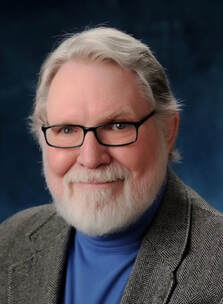 Welcome back to The Five, the blog series in which writers/authors share five lessons they learned from writing and publishing. These gifted writers come from different walks of life and write in various genres. I'm grateful to them for so graciously sharing their knowledge, wisdom, and craft. It's intended for aspiring and/or seasoned writers. Today's author is my good friend, Mark Miller. M. Mark Miller grew up on a ranch in Southwest Montana where the rugged Tobacco Root Mountains carve a jagged skyline in the Jefferson River Valley. As a boy, he played with farm machinery like tractors, grain combines and hay rakes, and farm animals like horses, cows, and chickens. When he was 10 his father gave him a heifer calf. He worked on the ranch for the right to keep the calf and her offspring there, and he eventually accumulated a beef herd that helped him pay for college. His earliest memories are of his grandmother telling about her trip to the park in 1909 and her father and grandfather’s trip there in 1882. Miller has capitalized on his life-long interest in Yellowstone history to assemble anthologies and write fiction and literary non-fiction. Miller is working on a memoir about his years as an undergraduate at the University of Montana, 1963-68. Those were turbulent times when students first organized to protest racism and the Vietnam War, as well as, curfews and dress codes for women. Without further ado, here is Mark's five tips for writers: 1. Thinking about writing is not writing. You have to put your fingers on the keyboard and make words—lots of words. 2. Never try to write a book. Just aim for a manageable chunk: chapter, section or scene—something with a beginning, middle and end so you know when you’ve finished it. When you’ve finished a chunk take a break. If it’s short like a scene, just a few minutes; if it’s medium like a section, an hour or so, and if it’s long like a chapter, take a day or so. Then repeat. It’ll add up to a book soon enough. 3. You don’t have to write every day, but you do have to write regularly while you’re on a project. If you take too much time off you'll waste time remembering where you are in the story. 4. Pace yourself. If you push for too many words in a day for too many days in a row, you’ll drain your wellspring of creativity. If you run that well dry it will take a long time to recharge. 5. When the muses speak to you take dictation. When the muses don’t speak write anyway. That’s how you summon them. Bonus: Do as I say, not as I do. 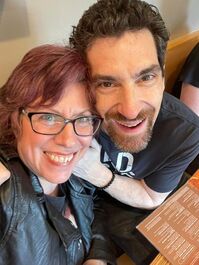 Living in Montana has its plusses, but access to headline entertainment isn’t one of them. At least, not the ones I’m interested in. If you want to see a band like… say, Duran Duran… on tour, then you have to hope they’ll pass through Denver, Minneapolis, or Seattle. And then you’ll have to pony up. Airline tickets (or, if road-tripping, gas), room and board, ride-shares and/or rental cars, and food add up to a hefty bill. To say nothing of what concert tickets are going for these days. I personally was rooting for the band to include Seattle for their latest US tour promoting their 2021 album Future Past and celebrating their 2022 induction to the Rock & Roll Hall of Fame. Craig and I haven’t been to Seattle since we saw Duran Duran in the nearby town of Everett. We had third-row center seats courtesy of our dear friend Jon Ehret. (Oh, how we miss him.) September 1, 2016. One month before our wedding. We have many friends in Seattle. I was blessed to stay with two of those friends on this current trip. And it’s just a cool city. Close to sea level. Close to the sea, too. Or, more specifically, the Sound. (As in Puget.) That 2016 trip was also the last time we saw my sweet Andy Golub; perhaps known better as “Durandy.” And, it was one of the last concerts we attended before The World Shut Down. (The very last one was Guster in 2019, in Providence, Rhode Island.) So much has changed since I’ve last been to the archive. I’ve changed. For one thing, I’m seven and a half years into marriage—that in and of itself is astounding. I’m seven years older. Thirty-five pounds heavier. Shorter hair. Longer bibliography. Like many, I’ve been through significant loss—of friends, of family, of a move that didn’t work out. Of a career that nose-dived and is back on its feet, albeit making a slow, steep climb back up the mountain. I’ve confronted health challenges. Financial challenges. Creative challenges. I’m still learning how to reconnect. And if the pandemic taught me anything (it taught me plenty, actually), it’s that connection is paramount to survival. I’m not talking about the Internet. I could hypothesize that at the end of the day, social media, which was supposed to bring us together, will contribute to our demise. I’m talking about face-to-face. Eye to eye. Hand in hand. Conversing. Listening. Living together. Being together. I’m talking about more than staying alive. I’m talking about what I call aliveness. Music connects. Books connect. Art connects. And, as it turns out, Andy connects. Andy, for whom kindness is an instinct, uses his collection of Duran Duran memorabilia—arguably, the world’s largest—to bring fans together. From every place and every background, each with their own story of fandom to tell. It would be easy for him to hoard it, or to charge a fee to view the posters, news clippings, prints, and countless rarities that span four decades. (Heck. I would pay to see it.) However, Andy’s payment is the joy he derives from the fans and their connection to not only the band and the music but also to each other. That makes him quite rich. A first glimpse of the archive’s home—a weather-protected storage unit in an undisclosed location—might be a turnoff to a newcomer. But when Andy raises the gate, magic happens. Like when Willy Wonka opens the door to the wonderland of his chocolate factory. Or Dorothy opens the door to the technicolor of Oz. We step back in time and onto a yacht in Antigua. Or a stage in the UK. Or our very own bedrooms. We turn into teenagers without the acne or angst. We giggle. We squeal with delight, albeit not as ear-splitting as forty years ago. We tell stories. We know our history through every phase of Duran Duran’s life, and we know their history through every phase of our lives. We hug each other. Even if we’ve just met. For the time we spend in Durandy’s Den, as he calls it, we momentarily forget loss and separation. We forget the time we all lived in isolation. We are connected. This week’s visit to the archive turned out to be something of a party. As much as I selfishly would have loved to have had Andy all to myself, spending that time with fellow fans and making new friends was an experience greater than myself, and it turned out I needed that more. And of course, there’s the archive itself. We spent hours immersed in contact sheets from iconic photo shoots, some of which I’d never seen before. Pored over them with magnifying glasses. When we were tired from standing (my spirit was 14, but my body was still 53 and my back was starting to hurt), we sat with curated books of pinups, news clippings, and advertisements from all over the world. Andy has so meticulously preserved these pieces; any archivist would be impressed. Got a favorite Duran? Andy’s got a book just for you. Or a box of posters. Or an amass of jacket pins. All set to the soundtrack of Duran Duran, of course. We listen to the music while we ogle the artifacts. Sometimes I lingered a bit, took a step back to let the newcomers have all the fun. I derived pleasure in seeing their pleasure, just as Andy does. Other times I joined in, fully engaged and excited. But what Andy lives for is that moment when a fan gets the look—when something has completely captivated her, and her eyes light up, she breaks into a toothy smile, and she is alive. He stands, phone camera poised, ready and waiting, because he knows the moment will come. And he shares them on social media not as promotion, but as goodwill. Every fan who’s been there knows the look because they’ve had it. Every fan who’s not yet been there hopes to someday because who wouldn’t want to experience that look themselves? Who doesn’t want to know what aliveness is really like? Andy’s aliveness is derived from the fans’ aliveness. Every look feeds his soul and charges his batteries. And he expends all of that energy on others. It’s the greatest feedback loop ever. If my visit lacked anything, it was the companionship of my husband. Seven years in, I still want to share these moments with my best friend. Duran Duran are about living in the now, but they are also inextricably connected to their past. They’re humanly mortal and culturally immortal. They are forever the face of the eighties, but their music is timeless. They are our soul mates. Eternally connected to us. Forever alive. And this archive in a seemingly ordinary storage unit, so lovingly cared for by the “keeper of the paper flame” (as John Taylor elegantly signed in one of Andy’s books), is the portal. Check out my Patreon, The Story Box! 10-day FREE TRIAL! You can try the $5 tiers for ten days at no cost to you. Whether you're a fan of Elisa Lorello books or a writer wanting to learn more about the craft, there's a tier for you! Click here to learn more!
I'm launching a new blog series called The Five. Writers/authors will share five lessons they learned from writing and publishing. These gifted writers come from different walks of life and write in various genres. I'm grateful to them for so graciously sharing their knowledge, wisdom, and craft. It's intended for aspiring and/or seasoned writers. 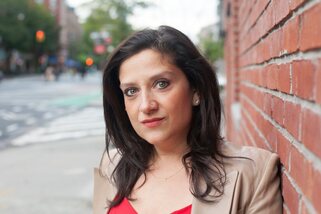 We kick off our series with Vicki Nadal. I met Vicki in the early days of Facebook after we connected via a mutual friend. Vicki Nadal lives in New York City where she is a Senior Copywriter and Associate Creative Director by day, and frustrated novelist by night. An avid lover of the arts, she finds that going to museums or to the theatre is an excellent way to become inspired when feeling stuck in a creative rut. When not procrastinating by showering her cat, Miriam Meowsil with attention, Vicki remembers that while there are countless great stories out there, we all have those few that only we can tell. I mean, how can you not already love someone with a cat named "Miriam Meowsil." ;) Here are Vicki's Five. Short and sweet. 1) If I feel that something I wrote is absolutely brilliant, it probably isn't. 2) Everyone thinks they can write, so when getting feedback, don't be afraid to push back (provided you can defend it!). 3) Word and character limits can actually be your friends. 4) Writing garbage is still better than not writing at all. 5) It's about the journey, not the destination. I especially love "Word and character limits can actually be your friends." Indeed! Thanks, Vicki! Would you like to contribute to The Five? Simply write five things from your writing/publishing life/career/journey. It could be lessons about the genre you write, craft, business, success, failure, your five favorite books, best/worst pieces of advice, go-to snacks, must-haves on your desk or in your office, distractions to avoid, etc. Have fun with it. You can write a list, or you can really dig in. Editors welcome too! You choose the theme. Then write the five. Then send it to me. Simple! Want more? Join my Patreon! If you're a writer wanting to learn more about the craft, or a reader and "fan" of my novels, then subscribe and receive exclusive weekly lessons, excerpts from works in progress, live Q&As, and even a chance to work with me one-on-one.
Your support will help me continue to bring you valuable content and keep publishing the novels I love to write. Thank you! Tell your friends! Click here to join! If you’re a subscriber to my newsletter, then you know that at the beginning of 2022, I put together a vision board using tarot cards using Radleigh Valentine’s Angel Wisdom deck. (See photo below.) The idea also came from Radleigh, who has been my tarot teacher for the last three years. The object is to select a tarot card that best represents your intentions for each month.
At the beginning of each month, I reported on the card of the month, and even tried to maintain the theme of the card throughout the month in each subsequent newsletter. It’s rather astounding how each month produced some form of manifestation of each card, although not always the way I had originally envisioned it. It seemed fitting to conduct my review of 2022 through the lens of the cards—what I envisioned, and what came to be. By the end of 2021, I had decided to become a professional card reader and Reiki practitioner. I was already working with clients, but I was going all in—an Etsy store, scheduling system, even designing and publishing my own oracle deck. I had accepted that my writing career as I had known it was over, and although I still wanted to write the occasional novel and had one on submission via my literary agent, it was time to move on. Thus, when I put together the vision board, I thought about the kind of business I wanted, along with some other life changes. I selected The Magician for January: “What you need to be a success will manifest.” What better way to kick off 2022? It was my way of setting the tone for the year (and the Major Arcana number for the card is Roman numeral 1). I spent most of the month making additional revisions to the manuscript following several rejections from publishers. I also outlined a schedule of tasks for the oracle deck, and was already ahead of the outline. February was all about The Empress: “Creative projects will be very successful.” I harnessed that energy with the manuscript revision as well as the oracle card deck. The Empress also represents abundance and prosperity. I connected with a Reiki Master via Instagram, and received distance Reiki specifically targeted at unblocking the energy surrounding my finances. Additionally, I was doing card reading and Reiki sessions for clients, and wouldn’t you know it, Radleigh Valentine opened a class for building your own tarot business—of course, I signed up for it, using some money I’d received for my birthday (abundance and prosperity!). I remember February being a very productive month, and I felt well on my way. The card for March was the Ten of Water (Cups in traditional tarot). This card depicts a family walking under a rainbow. It could mean a loving marriage, a good relationship with children, even a “happily ever after.” For me, it was specifically about being with family and friends. My husband and I traveled to visit his family and friends in Texas. From there we went to New Mexico, where we attended a Celebration of Life for our dear friend Jon, whom we lost the previous August. After two years being separated from loved ones and social connection, March marked the beginning of re-entering a world of hugs and human interaction, of dining out and being in the world. We left Montana in winter and returned in spring, and I could feel the change of season, both literally and metaphorically. I also started the tarot business course, but took a break from it to travel. Revisions completed (at least, for that go-round), the manuscript was back in my agent’s hands and back out on submission to publishers. For April, I selected The Wheel (known as The Wheel of Fortune in traditional tarot). The Wheel signifies “a very positive change in your life”—new beginnings, travel, relocation, buying a house, a turn of fortune, etc. My husband Craig and I had a second trip planned for the end of the month—this one was to a city and state that we thought we were going to move to. We had both been there before, but this time we wanted to look around, try to picture ourselves living there. Here's where things didn’t manifest the way I expected. For one thing, there was a significant shift in my life—my father passed away. On one hand, he was 93 years old and thus it didn’t come as a surprise. On the other hand, I don’t think you’re ever quite prepared to lose a parent. He died a couple of days before Craig and I were scheduled to take our trip. Because my dad had requested not to have a funeral or memorial, we decided to take the trip anyway. And although we had made the most of our visit, we noticed something important: we weren’t feeling that heck, yes in terms of it being a place we wanted to live. One of the major lessons from our time in Maine was to pay close attention to that feeling. We had ignored that when we’d moved to Maine—forced our feelings, in a way. Prior to our trip, we’d believed that this other city was going to be “the one”—discovering that it wasn’t had left us disappointed and a little befuddled. If it wasn’t Maine, and it wasn’t this place, and it wasn’t Montana (for me), then where? And yet, listening to our intuition this time was quite gratifying. In terms of fortune, two things happened: for the first time in many, many months, I’d reached 400 sales units of my backlist. For years, whenever I saw my monthly totals, I lamented how I used to sell hundreds of books per day. But I chose to see this as a big win, and to celebrate it. The second thing was that I contracted Covid. Our trip had coincided with the ending of the travel mask mandate (even though we still masked in airports and on the plane). After successfully avoiding Covid for two years, I was mad as hell that my streak had come to an end. The night we flew back to Montana, my throat was on fire, and I was down for the count for several weeks. Which leads me to May… May’s card was the Six of Air (Swords in traditional tarot). The image on the card depicts a family in a boat rowing to safety, the storm clouds behind them. Back in January, I’d envisioned several things: following our reconnaissance trip, I thought we’d be making plans to officially move there. I also thought by May of 2022, we’d be looking at the pandemic in the rearview mirror, hence “the end of a challenging time.” And yet, here I was in the throes of Covid-19, my dad having recently passed, and back at square one in terms of trying to find a place to live that fed both Craig’s and my souls collectively. My tarot and Reiki business was on hold, as was my attention to the business class. Moreover, I’d gotten news from my agent regarding the manuscript: she’d exhausted all her contacts regarding publication, and had gotten all rejections. This wasn’t as much a reflection on my book as it was the publishing industry still reeling from the effects of the pandemic. And yet, May was a turning point. As I healed from Covid, I made the decision to self-publish what came to be All of You. That decision lit a spark within me. Suddenly I felt the way I did when I first self-published Faking It twelve years prior—like I had nothing to lose. I felt confident that I could sell it, that it would make its way to readers. Something else within me healed. As I resumed the tarot business course, I discovered a recurring theme as I completed the preliminary exercises: As much as I enjoyed card reading, as much as I enjoyed being of service to others, my heart’s desire still resided in writing and publishing. And then the big breakthrough came: I finally stopped being afraid of getting my heart broken again. Because, as I said in my conversation with Tiffany Yates Martin, writing and publishing is a business of broken hearts. Like in romance, there was no avoiding it. All I needed to do was re-calibrate my expectations. Oh, and I decided to take up a new hobby: crocheting. I’d been wanting to learn for a while, and having covid made me stop putting it off. YouTube was a godsend. I watched countless videos, and fell in love with it. I found the practice to be reflective, even meditative, perfect for a writer. Next came June and mid-year. The Ace of Earth (Pentacles or Coins in traditional tarot) is about a windfall of wealth and/or prosperity, or a new job or career opportunity. Back in January, I’d envisioned being immersed in my business and doing well. I’d envisioned a clientele, my oracle deck to be ready for publication, and perhaps even a space outside of my house to conduct readings and/or Reiki. However, June saw opportunities of a different kind. I set a publication date for October 11 (I liked the numerology) for All of You, and immediately went to work promoting it. The previous year, I had designed a cover for the book so I could better visualize it—I’d never thought I’d actually publish the book with that cover. Yet my husband turned the cover design into something professional and beautiful. I kept working on the novel—revising, editing, and proofreading. Additionally, I landed podcast interviews and for the first time could fully talk about my experiences with rejection, and my healing breakthrough. I felt completely reborn. And what of my tarot business? I kept seeing clients, kept posting weekly videos, but I knew something significant had changed within me. At first, I tried to find ways to merge the two endeavors, including setting up a Patreon that mixed tarot readings with writing and storytelling. But every idea felt too forced. I was in love with writing and publishing again. I was excited about the future. Oh, and guess what: remember when my sales units surpassed 400? Well, they kept going up. It was as if once I had unblocked the thing that had been truly holding me back, everything else unblocked as well. I was indeed feeling more prosperous, not only financially but also creatively. July is always “the month in my way.” Between the anxiety from Independence Day fireworks (and where I live, the noise continues well before and after the 4th) and the dog days of summer, I don’t get much done. Knowing this, I had selected the Seven of Earth (Pentacles or Coins) to represent July. It’s about giving the seeds you planted a chance to grow, and giving yourself a rest and time to plan for what’s next. And that’s exactly what July was all about. I continued to learn to crochet. I planted more seeds for promotion. I looked ahead to what book(s) I wanted to write next. I put the publication of my tarot deck on hold. August resumed with the Page of Earth. In tarot, a Page either represents a student or someone youthful. It could also represent someone learning something new, taking a course, going back to school, etc. Back in January, I had selected this card with the intent of setting up online courses. I had figured by August that my oracle deck would be in the world, and I would teach others how to publish their own. I also considered tarot classes for beginners (I already taught one class in person), and maybe Reiki classes as well. Instead, I felt as if I was re-learning the publishing business and getting reacquainted with the market. I was also reading a lot and became active on BookBub. The image on the card depicts a woman sitting at a desk, surrounded by books, with one open in front of her. I was certainly feeling the energy of books, and it was a loving, comforting energy. September! Fall! My favorite time of year! The card for September was Three of Earth. “Do what you love! Recognition for the highest quality of work.” I wasn’t doing what I’d thought I would be doing when I selected the card in January, but I was officially a novelist again. I was an author. And I was already getting advanced feedback on All of You: “This is Lorello’s best.” Moreover, during a road trip to Great Falls, Craig and I discovered our heck, yes as far as relocation was concerned. And although I’m not yet ready to share that publicly, we were elated by the revelation. October, the month Craig and I got married and honeymooned (six years ago) was represented by the Two of Water (Cups), which is the card of love, romance, and union. “Falling in love or the resurgence of a love relationship.” I was not only celebrating my wedding anniversary, but also my resurgence of my love relationship with writing/authorhood. The launch of All of You, and readers’ excitement as much as my own, made October a magical month. (Craig winning a High Plains Book Award the same month was also delightful.) Together, Craig and I felt like we were finally back on the track where we began. We felt like a power couple again. We were excited for what was to come. I selected the Nine of Earth for November. For some reason, I always think of my grandmother when I see this card (specifically from this deck). It’s about being successfully self-employed. Back in January, this was what I wanted for my tarot business. When November arrived, my backlist was now selling one thousand units/month, and I was over the moon about that. All of You got excellent reviews and feedback, and I was especially selling a lot of print copies. I immersed myself in NaNoWriMo, and finished five days ahead of schedule with a first draft of a new manuscript. Oh, and Duran Duran got inducted into the Rock & Roll Hall of Fame. November came with sorrow as well. One of my beloved uncles passed away. I was devastated, especially since I couldn’t get home for the funeral. As well as everything was going, some things had yet to work out. I was awfully homesick, and that continued well into December, especially when Craig made an emergency road trip to Texas when his stepdad had a massive heart attack. (Thankfully, he’s OK.) Although I fully supported his going, I was resentful of the fact that he was able to be with his family in a time of need and I was not. Needless to say, despite my keeping up appearances on social media, I was quite depressed for the two weeks he was away. Which brings us to the final month of 2022, and the final tarot card: Nine of Water (Cups). Radleigh says this: “Nine of Water, wish comes true; what you want now comes to you.” Thinking from the end, in January I wanted all my “wishes” to come true by December. They did. But they were different wishes from what I had initially intended. At the time of this writing, All of You is poised to be one of the top-selling books at This House of Books. I have multiple manuscripts awaiting me for 2023. I’ve crocheted a hat, a scarf, a cardigan, and a sweater. (Fingerless gloves next; perhaps even a blanket.) I have an additional vision board for our relocation plans. My backlist continues to sell. I cut my hair. And although I didn’t get to see Duran Duran live or go home this year, I’m hopeful for next year. I’m still grappling with the losses of Jon and my uncle and even some lingering issues with my dad. I’m still homesick for the northeast coast. I’m not yet at the sustainable level for what I affectionately call “Elisa Lorello, Author 2.0.” But I am optimistic and grateful and so very blessed. And what of the tarot and Reiki business? What about that class? I’ve decided not to resume the tarot business in 2023. Nor the class. Was it a waste of time and money? Certainly not—that class led to my breakthrough and healing. So did reading tarot, both for myself and others. I’m grateful for all of it. Tarot and Reiki still play very important roles in my life, and I’ll never give them up. In fact, I’ve got my cards selected for 2023’s vision board. Which cards? You ask. Well, tune in to my newsletter next year. I can hardly wait to see how they manifest. 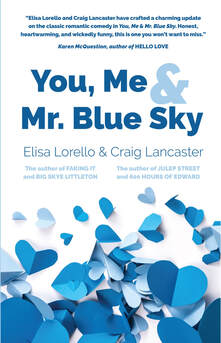 Same great book, new great look! Same great book, new great look! I’m briefly pausing from getting psyched for All of You’s launch (October 11, baby!) to share that Saturday, October 1, marks six years of marriage to the day for Craig and me. (I know, right? Like, when did that happen? How did it all go by so quickly?) To celebrate, Craig and I decided to give our co-penned novel, You, Me & Mr. Blue Sky, a cover makeover and do a Kindle sale for our anniversary month, effective October 1. We also kind of wanted to renew our vows to this book. Let me explain. In April 2016, while on an overnight trip to Seattle to see Paul McCartney in concert, Craig and I joined some folks at Lake Union, our publisher at the time, for lunch. “We totally want you to co-write a novel,” they said. “A he-said-she-said, but not too rom-com.” Craig and I agreed, excited by the idea. When we were platonic friends, we’d tossed around the possibility that perhaps we could co-write something. Our Facebook banter had become like good jazz, each one riffing off the other. This was all talk at this stage, however—no contracts were signed. Later that year, on a road trip to Texas to spend Thanksgiving with Craig’s family, an idea came to us, and we could hardly wait not only to write it, but also to pitch it to Lake Union and watch them do their magic. We wrote the manuscript in 2017. We did indeed use the he-said-she-said trope, but with a twist—a third character named Mr. Blue Sky, who happened to be a guardian angel with a penchant for 1970s pop culture. This third voice interjected between the other two, and functioned as a sort of Greek chorus. Craig and I had a great time writing it, and we challenged ourselves by switching roles, meaning I predominantly wrote in the male character’s POV and Craig in the female’s POV. We took turns writing Mr. Blue Sky, and especially had fun with those chapters. We then sent it to my literary agent Nalini, who signed Craig as well. She pitched it to Lake Union. They passed on it. They also, subsequently, dropped us.* Enough time has passed where I can look at this moment with some detachment, say “them’s the business,”** and be OK. But at the time, the rejection was the arrow to my chest that bled for years. As much as I stress the need to stay in a business mindset, I so often use love relationship metaphors when speaking about said business. This was the moment when Lake Union divorced us, left us for newer, shinier authors, and let me tell you, I was completely unprepared for it. I wanted to stay happily married, couldn’t believe I was being passed over, wanted to prove my love and loyalty and capability to keep on being a successful author. After additional submissions and rejections to other publishers, Craig and I decided to publish YMMBS ourselves, our first book under our Lancarello Enterprises umbrella. But first, a move across country. Which wasn’t going so well. But we weren’t ready to admit that to ourselves or each other. Craig and I were in a dark place all around. Our royalties had decreased to the point of no longer being sustainable. We were stung by the rejection, and adrift without a publisher. Our creative wells had run dry. And our new home had yet to take root (it never did, through no fault of its or our own). We released YMMBS in January 2019 (my birthday, to be exact), and by then we were so burnt out on the business that we barely cared. We did little to no promotion. We didn’t schedule a tour until months later, and did it in our then-former residence of Montana (and I ended up not accompanying Craig; a different story altogether). Of course, I put on a different face. Made it seem like the launch had a good jump out of the gate. And yet, we loved this book. We were proud of it. Within the coming year, it would earn a Finalist position in two awards. And those readers who stuck with us loved it as well. One reader loved it so much that she posed with it—and her book club—at her wedding. We just weren’t capable of expressing that love at the time, or putting it in action. We didn’t have the bandwidth. Fast-forward three years. We moved back to Montana. We made peace with our parting with Lake Union. Craig joined forces with a new publisher, and I tried other things until I finally returned to my first love and went all in on Elisa Lorello, Author 2.0 with re-calibrated expectations. We were on to new books and new ideas. But we occasionally looked at You, Me & Mr. Blue Sky and wished we’d done a better job of setting it up for success. It might not be possible for YMMBS to have a second first time (see what I did there?), and I certainly don’t want anything stealing All of You’s thunder, but our anniversary seemed like the perfect time to renew our commitment to it. To make amends for its lackluster entrance into the world. To cut the energetic cords of rejection and resentment and burnout that had surrounded it. Just like Craig and I do every year on our anniversary. We recommit. We renew. We cut the cords of yesterday and look forward to tomorrow while giving thanks for today. We know Mr. Blue Sky approves, and is cheering us on. *By the time we officially submitted YMMBS, both Craig’s and my last couple of books with Lake Union didn’t sell well. From a business point of view, that’s pretty much the nail in the coffin in terms of future prospects with the same publisher, regardless of how good the manuscript is. **There’s a load of privilege in this post, and in our life. I never want to lose sight of that. We lived a dream so many authors never get to actualize. So please don’t interpret any of this as a “poor-me” tale.  Want the snazzy new paperback (and who wouldn't)? You can order it through This House of Books, and you can even request for both of us to sign it at no extra charge! NOTE: MAKE SURE YOU SPECIFICALLY REQUEST THE NEW COVER! Use the ORDER COMMENTS text box on the online order to specify that you want the new cover and/or a signed/inscribed copy. (You can also call the store direct!) And please allow several weeks for the new design to take effect and be delivered. (At the time of this writing, the old cover is still showing on the website.) Today is National Book Lovers Day. I have some thoughts about being a book lover, both from a writer and reader’s perspective.
If you’ve been subscribing my newsletter, listening to a recent podcast interview I did, or keeping up with my husband’s blog posts, then you know I’ve been experiencing a bit of a Renaissance in my writing career. I’ve regained my tenacity. I’ve re-calibrated my expectations. And, most importantly, I’ve recovered the joy. I’m writing again. The ideas are lining up like planes on a runway, waiting their turn, just like they used to. I’ve even designed book covers and taped them to a vision board to assist in their manifestation. I’m reconnecting to the writing and reading community. Although I wouldn’t go as far as to say I burned bridges, I did pull back quite a distance when things weren’t going so well. It feels comforting to see so many books in my newsfeed again, to take part in the conversations, and to be engaged simply for engagement’s sake. I love the book I’m about to birth into the world. I love the books I’ve already written that have been reaching new readers. And the older I get, the more comforted I am when I am surrounded by books, be it at a bookstore, a library, or my own home. I’m also reading again. A lot. Not that I ever stopped reading. More like scaled back. Read fewer books more slowly. To look at it retrospectively, I think reading was actually painful for a time. I so longed to create these stories and characters and settings that I almost couldn’t bear to take part in others. Soon, what began as painful turned into something more therapeutic. I missed reading. And I figured that even if I wasn’t currently writing, even if I didn’t have a single good idea, I could celebrate others’ good ideas. I could appreciate the act of reading. I could bide my time, and my ideas would show up somewhere in the pages of other books. Which is pretty much what happened. I read for professional reasons, too. If I was officially diving back into this business, then I needed to know the market. If I needed to get comfortable with the craft again, then what better way than being a student of it again through reading? It worked. Reading, like writing, has become immensely joyful again. And as I reflect on these last five years, offering insight and advice for writers who may find themselves in my position, I would tell them to keep reading. Even if it was painful. Read through the pain. Read because eventually the pain turns to peace. It turns to power. Put another way, it’s act of love. I'm so excited to officially announce that my twelfth novel and fourteenth book, ALL OF YOU, will launch on October 11, 2022. This one is special (well, they're all special). I began writing this book in 2014, and it kept getting pushed aside for other projects. Add to that major life changes, a career crisis, a pandemic, and a resurgence of confidence and commitment, and ALL OF YOU is finally ready to be born into the world. I'm completely in love with this novel, this story and these characters. (See the synopsis below.) My husband put it this way: "Her whole heart is in there," and he's not wrong. I'm also digging this cover, a joint effort between my husband and me. Stay tuned for upcoming interviews and information. And although time already passes too quickly, bring on October! Former teen pop star Joey “Paisley” Parker has loved her lucrative career as a music producer and audio engineer. However, ongoing changes in the industry and consumer consumption threaten her livelihood, and she’s faced with walking away before she turns fifty. Yet before she does, she agrees to produce one more album: the British quintet Taro, who came of age with Joey in the 1980s and saw stardom rivaling the Beatles. They want to attempt one more comeback, and they believe Joey—who owes much of her musical inspiration and ambition to Taro—is the only producer who can make that happen.
There’s just one problem: Taro’s bassist Garrett Chandler, twin brother of the late drummer Gavin Chandler who died before his twenty-fifth birthday and was the love of Joey’s life. To work together, Garrett and Joey need to set aside bad memories and their shared ghost. Moreover, as a drummer herself, Joey offers to fill in for Taro’s deceased band mate, much to Garrett’s resistance. With a crowdfunding budget, a home recording studio on Long Island, and a little help from her friends, Joey and Taro are a long way from the rock star life of glamor and excess they once knew. Yet day by day, they are making something special. Furthermore, Joey finds herself at the dangerous edge of a professional boundary by getting personally close with the band and an intimacy she’s never experienced. She is especially alarmed by the chemistry between her and Garrett, both in and out of the studio, which threatens to betray her ethics altogether and put the album and Joey’s reputation in jeopardy. Ultimately, Joey risks losing a life’s worth of credibility and achievement, as well as ending Taro’s career permanently. Worse still, she fears losing herself and the connections she’s cultivated, which, she’s learned, is as powerful as the music she makes. Using her signature style of heart and humor, Elisa Lorello has crafted a seasoned story of the love you need, the music you make, and the life that happens between the notes. My husband Craig and I just finished a two-week road trip that, among other places, brought us to Santa Fe, New Mexico, where we attended a Celebration of Life ceremony for our friend and honorary brother, Jon Ehret, who passed away suddenly in August, 2021. My husband gave a beautiful eulogy, a sort of exclamation point to a blog post he’d written last year. I stood by his side as he delivered it. Afterwards, Jon’s wife, Laura, invited others to share memories or stories about Jon. I felt called to come forward on my own and deliver an anecdote off-the-cuff. I’ll tell you that story here in just a moment, but first, let me explain the title of this blog post. In basketball, there are five starting players from each team on the court. The sixth man* is the first person off the bench when a player takes a rest and is considered a singularly important player. This player is typically not the superstar. He likely doesn’t have sneaker deals or TV commercials. But he comes onto the court and gives everything he’s got. He’s the consummate team player—he’s in it for the win rather than the glory. He has a job to do and relishes the role. I didn’t know Jon for nearly as long as Craig did—Craig introduced us in 2015 during a trip to Seattle; he and Laura were living there at the time—but he almost instantly became like a brother to me. I already have five older brothers. Even my twin was born three minutes before I was. I didn’t think I needed a sixth. Jon showed me that I needed him as my sixth brother. And he was a sixth brother much like the sixth man in basketball. He showed up when needed, came off the bench and onto the court, and shined during those minutes of play. A star performance without the glory. A team player, through and through. He did it in email exchanges, such as the one when I picked his brain about digital photography—I was toying with the idea of taking it up as a hobby—and he delivered so much more than the rundown of what a decent camera costs. He did it on subsequent visits, when he allowed himself to be both vulnerable and empathetic in conversation, while extolling the virtues of good food and good music. He did it at our wedding (which he and Laura traveled across the country for), when he helped Craig set up tables and chairs at the venue, and gifted us with two high-end bottles of champagne. Oh, and he was tall. Like, basketball-player tall. Which brings me to what I shared with those who gathered last week to celebrate Jon. Hopefully I will tell my story with more eloquence here than I did there. Jon and I shared music fandom. You all know by now that my band is Duran Duran. Jon’s was The Who. Given that Jon fell within the age range of my siblings, I have, at the very least, an average knowledge of The Who and perhaps a slightly above-average appreciation for them. Jon could’ve said the same about Duran Duran, I surmise. We swapped stories about memorabilia finds, best concerts, musical talent, and more. We each respected and appreciated the other’s fandom. When Duran Duran came to Everett, Washington, just outside of Seattle, in 2016, I scrambled to buy tickets online. I was pretty proud of myself for scoring twelfth-row floor seats. We let Jon know we got them, and thus would be in Seattle, hoping to line up another visit. Jon called us back. He scored third-row center. Suddenly my twelfth-row seats were looking pretty shabby. I playfully fumed at him: “Damn you, Ehret!” He laughed and replied amiably, “I know how to manipulate the system.” I was mostly happy at the prospect of Jon going to see Duran Duran and perhaps getting a birds’ eye view of my fandom. (Did I mention how tall he was?) I was happy about the prospect of Craig and I getting to see our friends again. On top of everything else, Jon and Laura and Craig and I were great double-daters. Jon called me shortly afterwards. “I’ll trade you tickets,” he said. “Your seats for mine.” I went slack-jawed and wide-eyed. I think he could almost see it. “That third-row-center fan experience is for you, not for me,” he said. “You need it way more than I do. Those are your guys.” That was Jon. Selfless. Simple. A superstar without the glory. We did trade tickets, Craig and I went to the show, and it was, indeed, the fan experience I’d always dreamed of. As special as these things come. One of the best Duran Duran shows ever. We didn’t get to see Jon and Laura on that trip, and they didn’t get to attend the show. I can’t remember why. But one month later, they came to our wedding, and celebrated our second anniversary with us in Maine. That was the last time we got to see them together in person. A Celebration of Life isn’t only about remembering the person who’s passed. It’s also about the people left behind. The shared love and gratitude for having known him/her. The stories. The memories. The artifacts. The messages. The signs. It’s literal celebration of life. And in this day and age, when death has hovered over us like a monsoon that just won’t let up, we need that sunshine. I didn’t have my sixth brother in my life for long. But oh, what a mark he made. *Yes, women also play basketball, so “the sixth man” as a term is antiquated. But I hopefully illustrated why it worked in this context.
|
Archives
June 2024
Categories
All
|
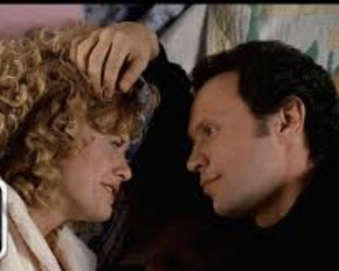
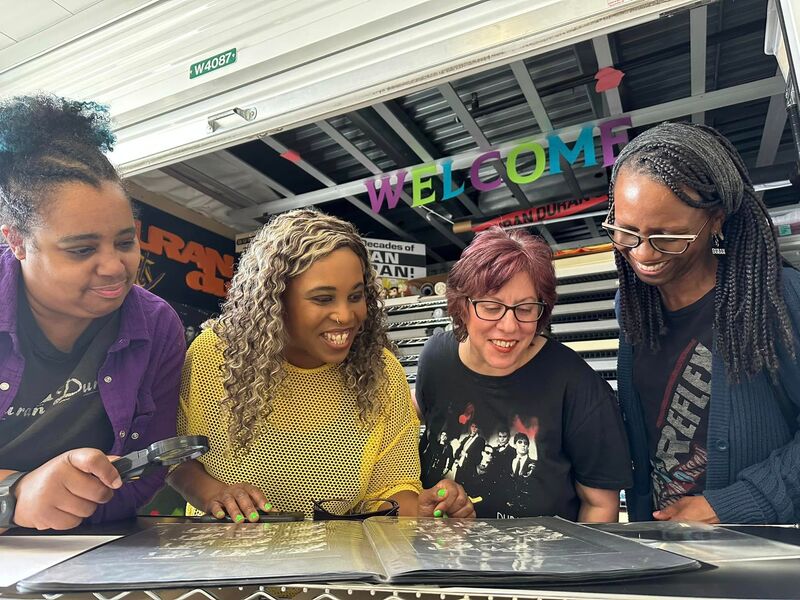
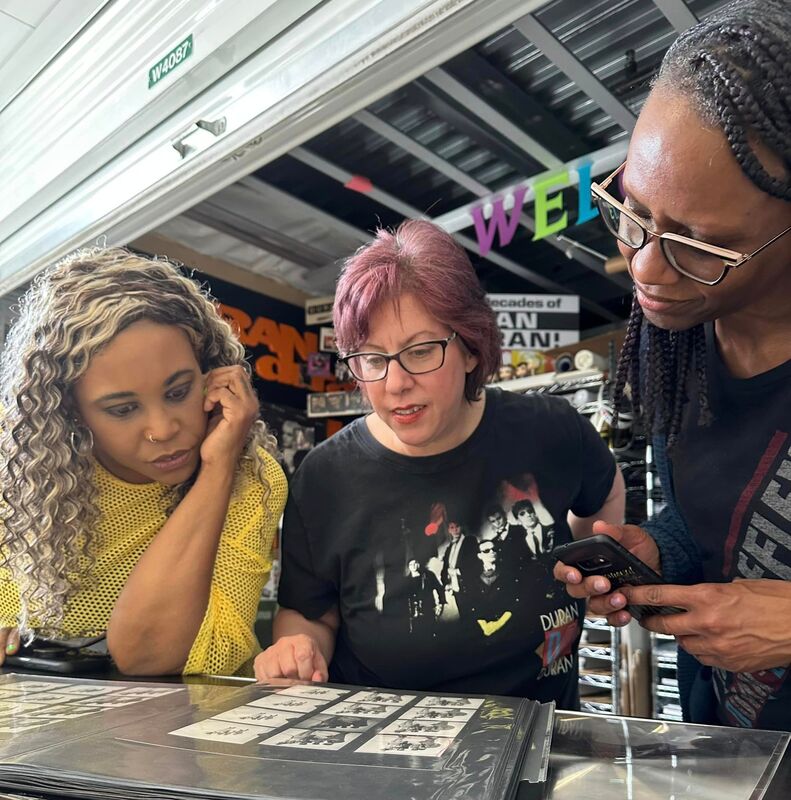
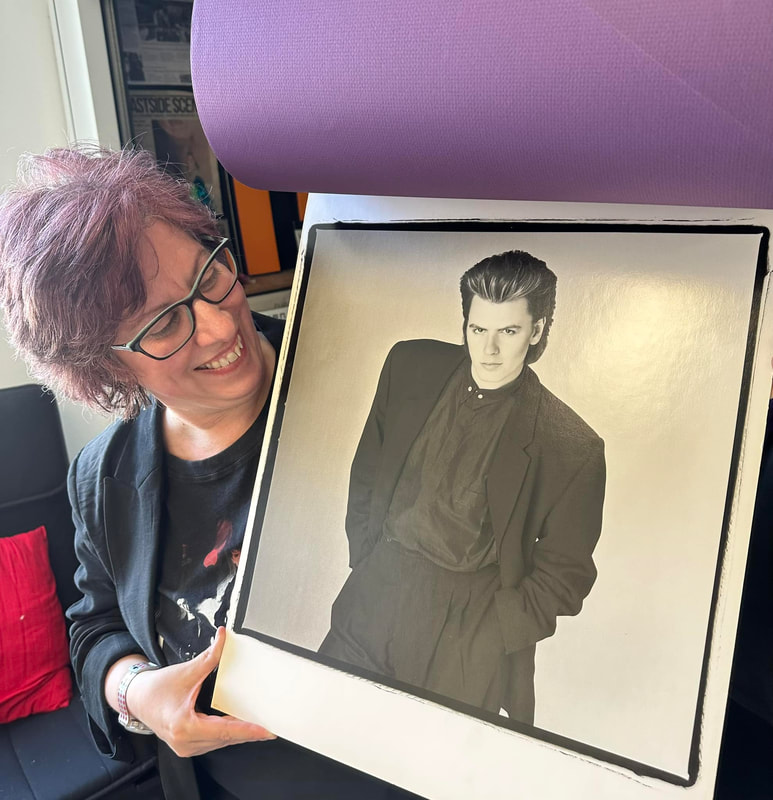
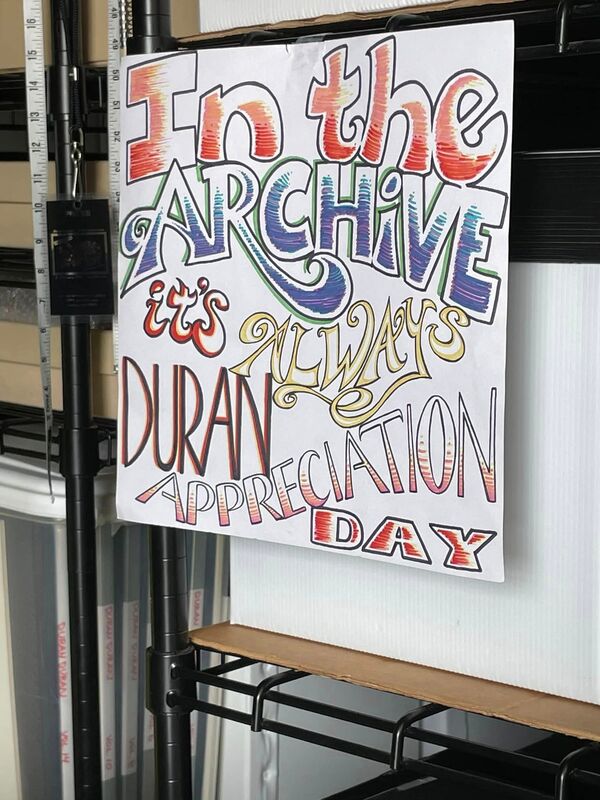
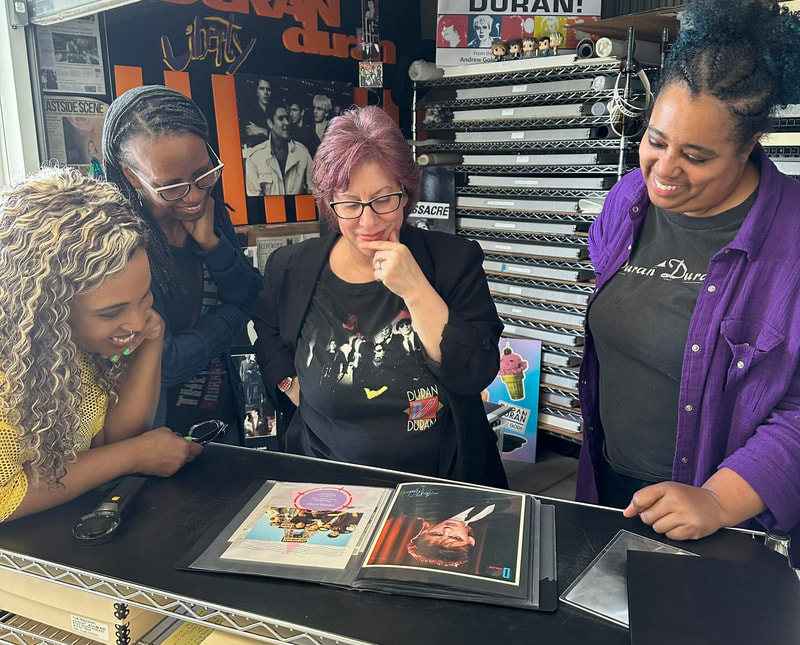
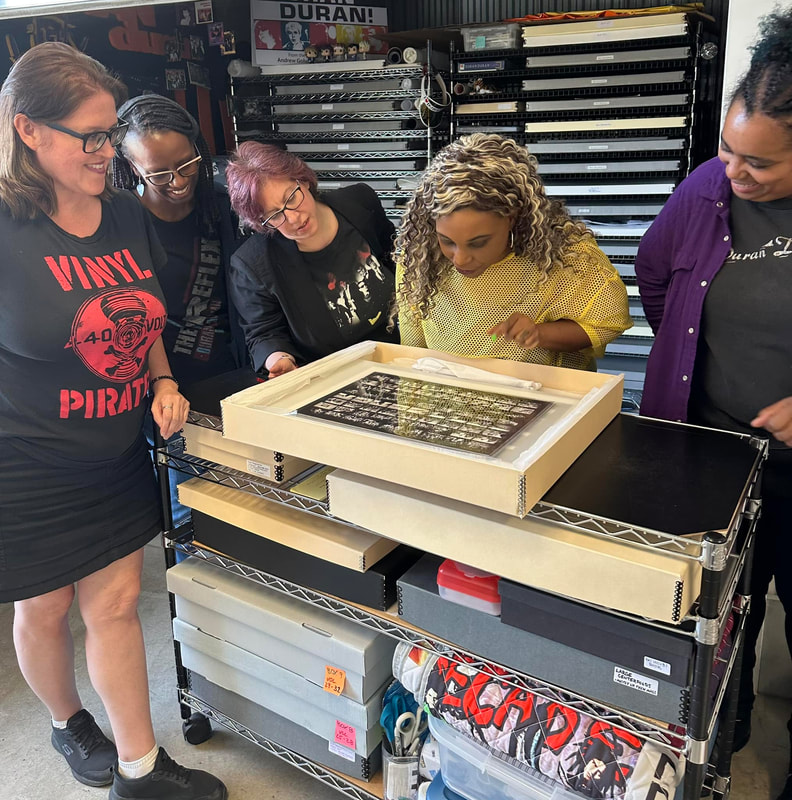
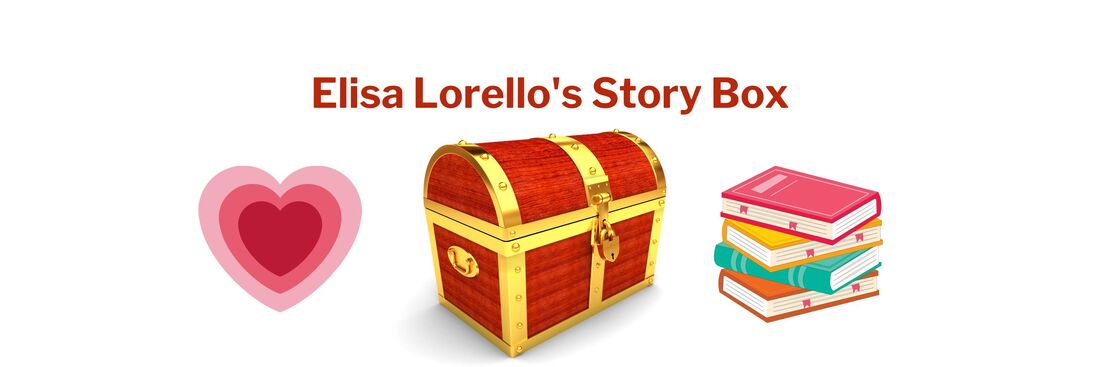
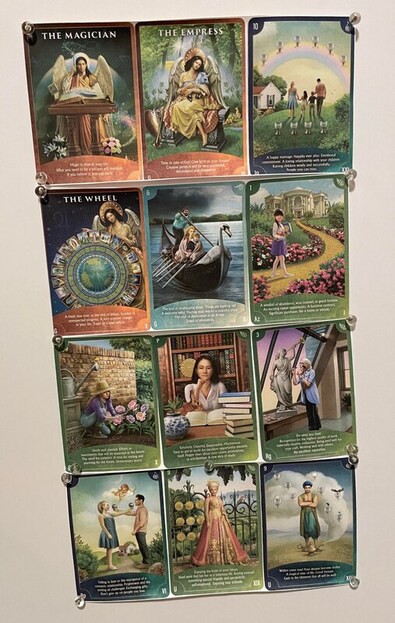
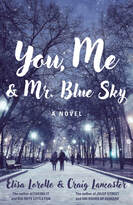
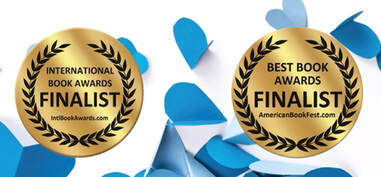
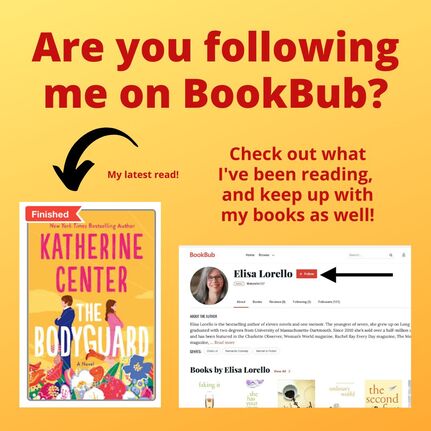
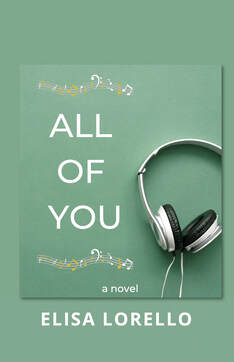
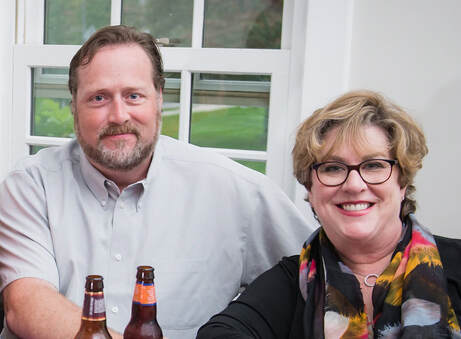

 RSS Feed
RSS Feed